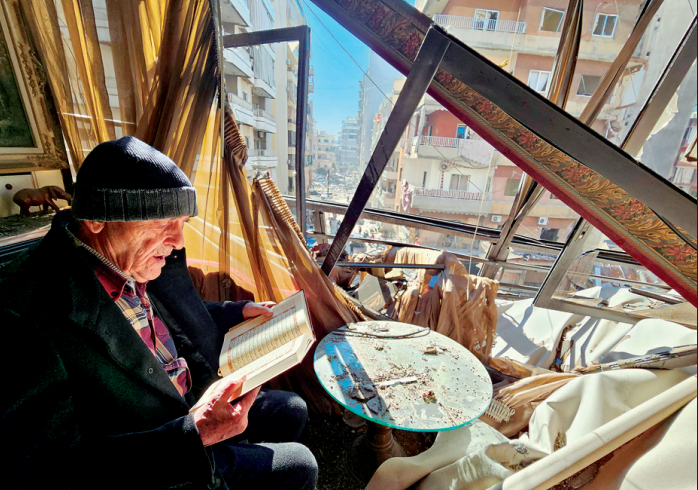
JERUSALEM — The Israeli military carried out airstrikes in Lebanon on Saturday against Hezbollah activities that it said “posed a threat”, days into a fragile cease-fire between it and the armed group.
The army said it had also struck “military infrastructure” on the Syria-Lebanon border, where it accused Hezbollah of smuggling weapons in violation of the truce.
In a speech last week announcing his government was ready to accept a cease-fire after more than a year of hostilities with Hezbollah, Israeli Prime Minister Benjamin Netanyahu warned that Israel would maintain “full military freedom of action” in the event of any breach.
In a statement on Saturday, the military listed four separate strikes in Lebanon on facilities, weapons and vehicles belonging to Hezbollah, saying it had acted “against activities in Lebanon that posed a threat to the State of Israel, violating the cease-fire understandings”.
Lebanon’s Health Ministry said an Israeli “strike on a car in Majdal Zoun wounded three people including a seven-year-old child”.
Lebanon’s state-run National News Agency reported “continued violations of the cease-fire” by Israel, including an incident in which an Israeli tank “crushed a number of cars and surrounded some families” who were later evacuated by the International Committee of the Red Cross.
The cease-fire deal, which was intended to end more than a year of cross-border exchanges of fire and two months of intensive battles, went into effect early on Wednesday.
As part of the terms of the agreement, the Lebanese army and United Nations peacekeepers will deploy in southern Lebanon as the Israeli army withdraws over a period of 60 days.
Hezbollah is also expected to withdraw its forces north of the Litani River, about 30 kilometers from the border, and dismantle its military infrastructure in southern Lebanon.
On Friday, the group’s chief Naim Qassem vowed to cooperate with the Lebanese army “to implement the commitments of the agreement”.
Israel stepped up its campaign in southern Lebanon in late September after nearly a year of cross-border exchanges of fire, in which Hezbollah said it was acting in solidarity with Palestinian allies in Gaza.
Meanwhile, as representatives arrived in Cairo on Saturday for talks on a possible cease-fire in Gaza, a senior Hamas official told AFP that the group is open to discussing “all ideas and proposals”.
Hamas has “not received any new offer or proposal so far”, the official said, speaking on condition of anonymity because of the sensitivity of the topic.
But Hamas “is open to discussing all ideas and proposals that lead to the end of the war, Israel’s withdrawal from the Gaza Strip, the return of the displaced, the entry of humanitarian and relief aid, and a serious deal to exchange prisoners”, he said.
On Sunday, Israeli military strikes killed at least 15 Palestinians, including children, medics said, as Israeli forces kept up bombardments across the enclave and blew up houses on its northern edge.
Israeli airstrikes killed at least 54 people, including a journalist and a civil defense officer, in Gaza on Saturday, according to Palestinian sources.
In northern Gaza, at least 40 Palestinians were killed in an Israeli airstrike on the home of the Al-Araj family, which was sheltering displaced people in the Tal al-Zaatar area of Beit Lahia, the civil defense said in a statement.
The head of the United Nations Palestinian refugee agency, Philippe Lazzarini, said on Sunday that aid delivery through the Kerem Shalom crossing between Israel and Gaza has been halted for safety reasons.
AGENCIES – XINHUA